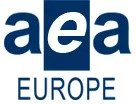George MacBride
George MacBride taught in Glasgow secondary schools for 37 years, retiring in 2006. As a leading member of his professional association (EIS) he actively participated in the development of the curriculum and assessment in Scotland through membership of government working groups and of councils and committees of national curriculum and assessment agencies.
Recent Holistic Assessment SIG seminars have prompted reflection on what we mean by the term ‘holistic’, a word often employed in education as a token of approval without clear definition of what it means in practice. While we may avoid the babble of new-age snake-oil vendors we are left with vague ideas of wholeness, inclusion, integration and breadth. Do we apply the term to the learner as a person, to the purposes and organisation of the curriculum, to classroom learning experiences, to assessment and/or to contexts for learning?
The United Nations Conventions on the Rights of the Child provides a useful focus for developing a more rigorous understanding of the term ‘holistic’. Article 29(1)(a) determines the fundamental aim of education as ‘the development of the child’s personality, talents and mental and physical abilities to their fullest potential’. The Article establishes the context for enacting this aim as the development of respect for: human rights; the child’s cultural identity, language and values; the values of their countries of residence and origin; and the natural environment. Article 12(1) entails the active participation of learners in classroom learning and assessing: ‘the child who is capable of forming his or her own views [has] the right to express those views freely in all matters affecting the child, the views of the child being given due weight in accordance with the age and maturity of the child’. Together these articles suggest that the full development of the child’s personality requires a curriculum that reduces the risks of unchallenged classification and framing and encompasses a wide range of content, experiences and structures to allow opportunities for personalisation and choice.
If we are to address today’s and tomorrow’s complex and deep-rooted social, economic and environmental challenges, some unknown, learners need to develop and employ a breadth of knowledge, understanding, skills and dispositions. Education systems should support learners to use their learning to think and act with others creatively, critically and responsibly in challenging contexts.
Today, the facile and often arid employment of mutually exclusive binary opposites (e.g. knowledge versus skills, transmission versus construction, rigour versus engagement, cognition versus affect, disciplinary versus interdisciplinary) will be unhelpful. Such pairs are better regarded as forming end-points to a continuum which policy-makers and educators can use to select approaches appropriate to their context and circumstances, to particular disciplines and to the needs of learners.
Further, we should recognise that there is no universally correct way of categorising human knowledge and learning processes; our knowledge and concepts are provisional. Disciplines offer different ways of seeing and valuing the world and of working together to acquire, produce and use knowledge (cf. Cowie & Moreland, 2015). Every discipline is characterised by its own concepts, theories and skills and develops over time within boundaries which are not fixed (cf. Royal Society of Edinburgh, 2017). New domains develop (e.g. vernacular language and literature). National history and culture inform our conceptions of domains, even mathematics (cf. Van den Heuvel-Panhuizen, 2020); education systems disagree on whether geography is a natural science or a social science.
In developing curriculums and planning learning experiences and assessment approaches, we should employ structures and models, appropriate to our context, which support meaningful holistic learning that embodies the breadth of curricular aims and purposes required to address the UNCRC requirements and the challenges of today and tomorrow.
There are many models to draw on (e.g. the pillars and lintels of the Royal Society of Edinburgh paper; the integrated competences, contexts, constraints, strategies and activities of the Council of Europe framework). A comprehensive structured model of a ‘holistic’ curriculum is that proposed by the OECD Future of Education and Skills 2030 programme which brings together:
four defined categories of knowledge: disciplinary; interdisciplinary; epistemic; procedural
three broad groups of skills: cognitive and meta-cognitive; social and emotional; practical and physical
four distinct sets of attitudes and values: personal; social; societal; human
to develop key competencies through involving learners in developing, mobilising and demonstrating their knowledge, skills, attitudes and values in meaningful and challenging contexts.
A constructive approach to using a continuum between binary terms is illustrated by the Council of Europe (2001:183ff). Thirteen pairs of assessment related terms (e.g. achievement assessment & proficiency assessment) are presented with no preferred pole. Appropriate uses of each continuum (related to purpose, content, context) are critically considered. Assessment of such learning should be forward focused, providing stepping stones for learners rather than milestones.
Assessment moves beyond feeding back to improve current learning (important though that is) to feeding forward to support further long-term learning, improved learning processes and responsible self-evaluation (cf. Hattie and Timperley’s 2007 model). Assessment practice will draw on a range of types of evidence, provided in different contexts (classroom, school life, out-of-school activities, personal challenges) by various actors, including crucially the learners.
Any comments, queries, critiques will improve these initial thoughts!
Council of Europe (2001) Common European Framework of Reference for Languages. Cambridge: Cambridge University Press
Cowie, B. & Moreland, J. (2015) Leveraging disciplinary practices to support students’ active participation in formative assessment, Assessment in Education: Principles, Policy & Practice, 22:2, 247-264
Hattie, J. & Timperley, H. (2007) The Power of Feedback, Review of Educational Research, 77:1, 81-112
Royal Society of Edinburgh (2017) Pillars and Lintels: The What’s, Why’s and How’s of Interdisciplinary Learning
Van den Heuvel-Panhuizen, M. (ed) (2020) National Reflections on the Netherlands Didactics of Mathematics. Springer Open

0 Comments